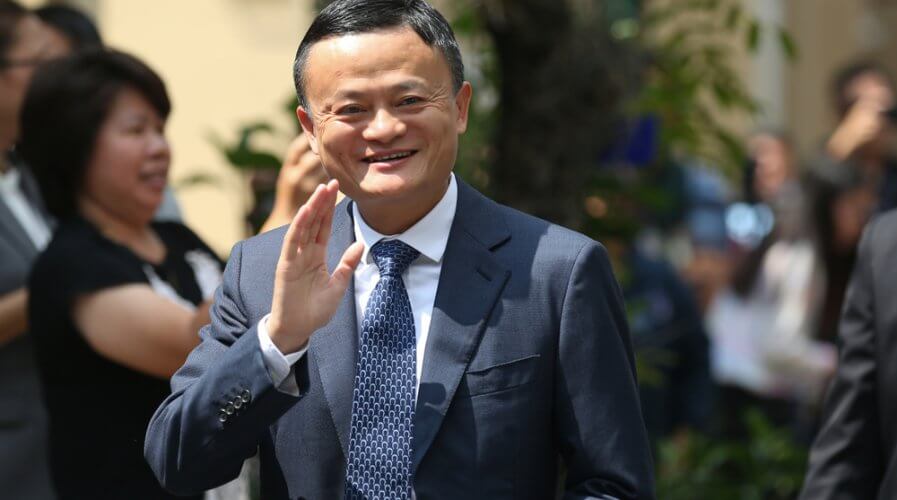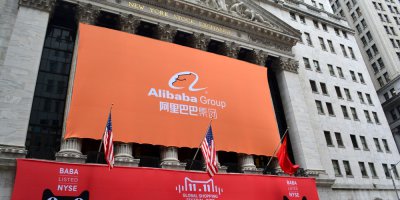
Jack Ma will step down as Alibaba Chairman before the next 11.11 sale. Source: Shutterstock
Did this year’s 11.11 sale really deliver on expectations?
FOR Jack Ma, the 2018 edition of the Singles’ Day sale meant more than it did to other stakeholders. It’s the last one before Ma steps down as Chairman of the company — and is one of the reasons why experts believed it would be bigger than ever before.
In many ways, it seems as though the sale did deliver everything that analysts believed it would.
Alibaba announced that the company drew in US$30.7 billion in merchandise sale — an increase of 27 percent compared to last year’s US$25.3 billion
Cainiao Network, part-owned by Alibaba, processed more than 1 billion delivery orders, and attracted more than 180,000 brands who participated and benefitted from the sale.
In fact, 237 brands exceeded CNY100 million (US$14.4 million) in GMV, including leading international brands Apple, Dyson, Kindle, Estée Lauder, L’Oréal, Nestlé, Gap, Nike, and Adidas — about 40 percent of consumers made purchases from international brands.
Stats revealed by Alibaba showed that it was not only Chinese companies that benefitted from the sale. In fact, brands in Japan, the US, South Korea, Australia, and even Germany drew significant revenues from Chinese residents during the Singles’ Day sale this year.
“11.11 has evolved for all brands in China. The period is not only a day to create a sales peak, but also an opportunity to renew the cycle of an AIPL (Awareness, Interest, Purchase, Loyalty),” said Dentsu Aegis China Chief Digital Transformation Office Sara Si.
“This strategy is being deployed by both mass FMCG players and more niche premium labels who are able to attract curious new consumers who are savvy in their shopping and looking for something special,” added Si.
While the numbers are impressive, it seems as though the sale this year had another motive: To gain back the loyal fans and customers it had lost to new competitors recently.
E-commerce and social selling platforms such as Tencent-backed Pinduoduo and others are slowly growing their share of the market and attracting more buyers from different parts of China.
However, the Singles’ Day sale with its mega-value offers and multi-billion dollar spends not only bolsters Alibaba’s profits but also ensures customers remember the value that the company’s platforms can bring to shoppers.
Outside China, however, it’s an entirely different story.
Alibaba’s e-commerce platform Lazada is making waves in the Southeast Asian (SEA) market bringing the festival to consumers in Singapore, Malaysia, Thailand, Indonesia, the Philippines, and Vietnam.
By the end of the sale day, Lazada’s shoppers across the SEA took advantage of more than 50 million deals and bargains, with a total of 1.2 million orders within the first 60 minutes.
Despite strong competition from local platforms, Alibaba’s Lazada has established itself as a key player in the e-commerce ecosystem in the SEA market.
Overall, it seems as though Alibaba Chairman Ma should be happy with the performance. The sale made an impact on 230 countries and regions — delivering on the Ma’s ambitions to take the Singles’ Day sale global.
This is the seventh in a series of stories that Tech Wire Asia will produce to help e-commerce readers better understand and plan for Singles’ Day this year.
READ MORE
- Ethical AI: The renewed importance of safeguarding data and customer privacy in Generative AI applications
- How Japan balances AI-driven opportunities with cybersecurity needs
- Deploying SASE: Benchmarking your approach
- Insurance everywhere all at once: the digital transformation of the APAC insurance industry
- Google parent Alphabet eyes HubSpot: A potential acquisition shaping the future of CRM




